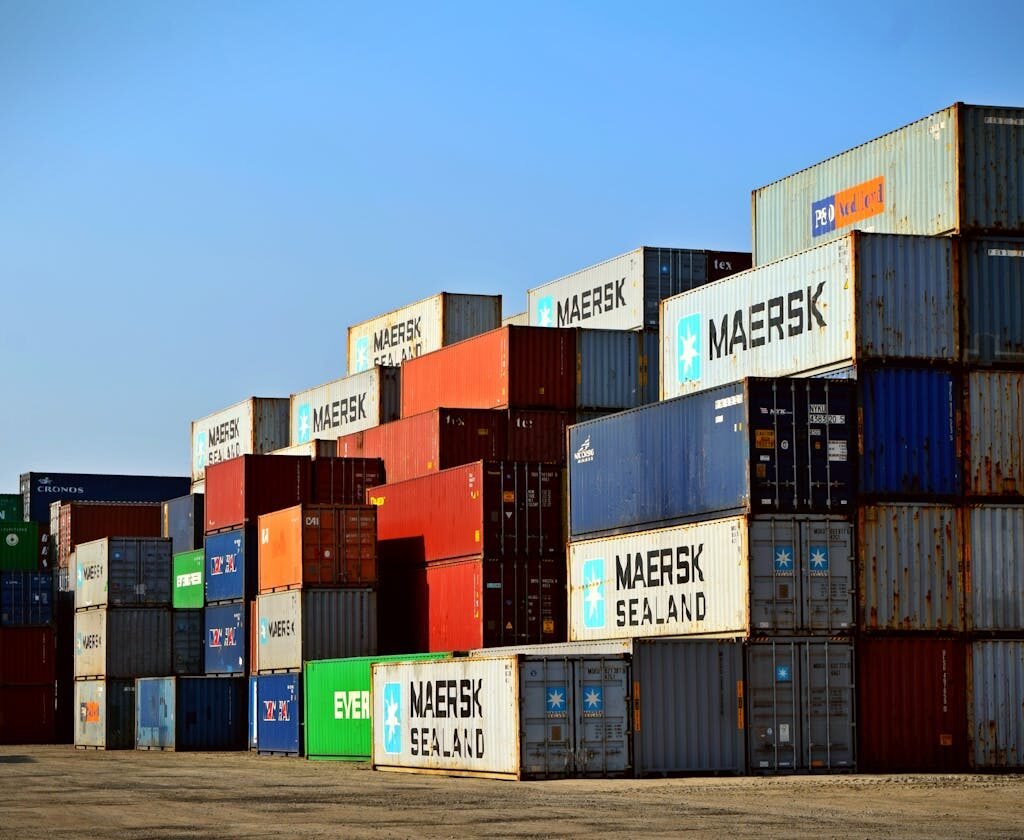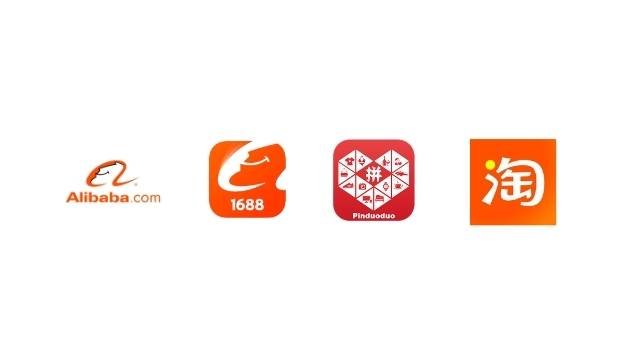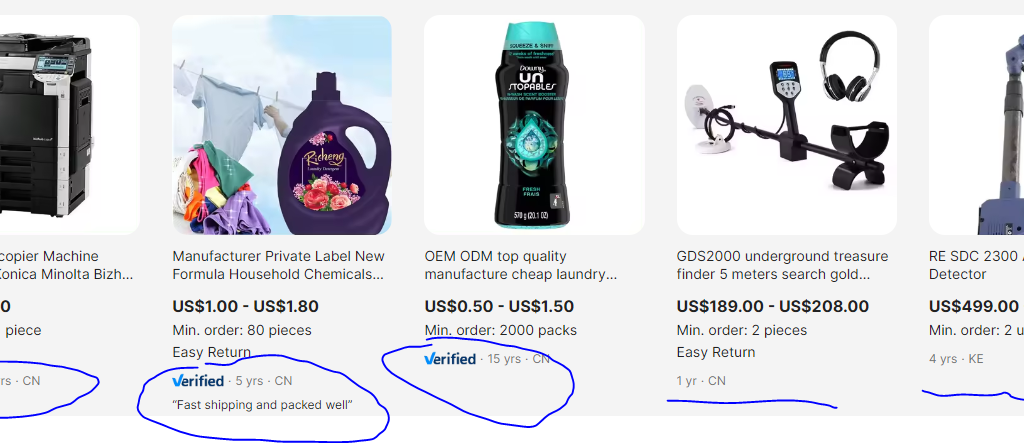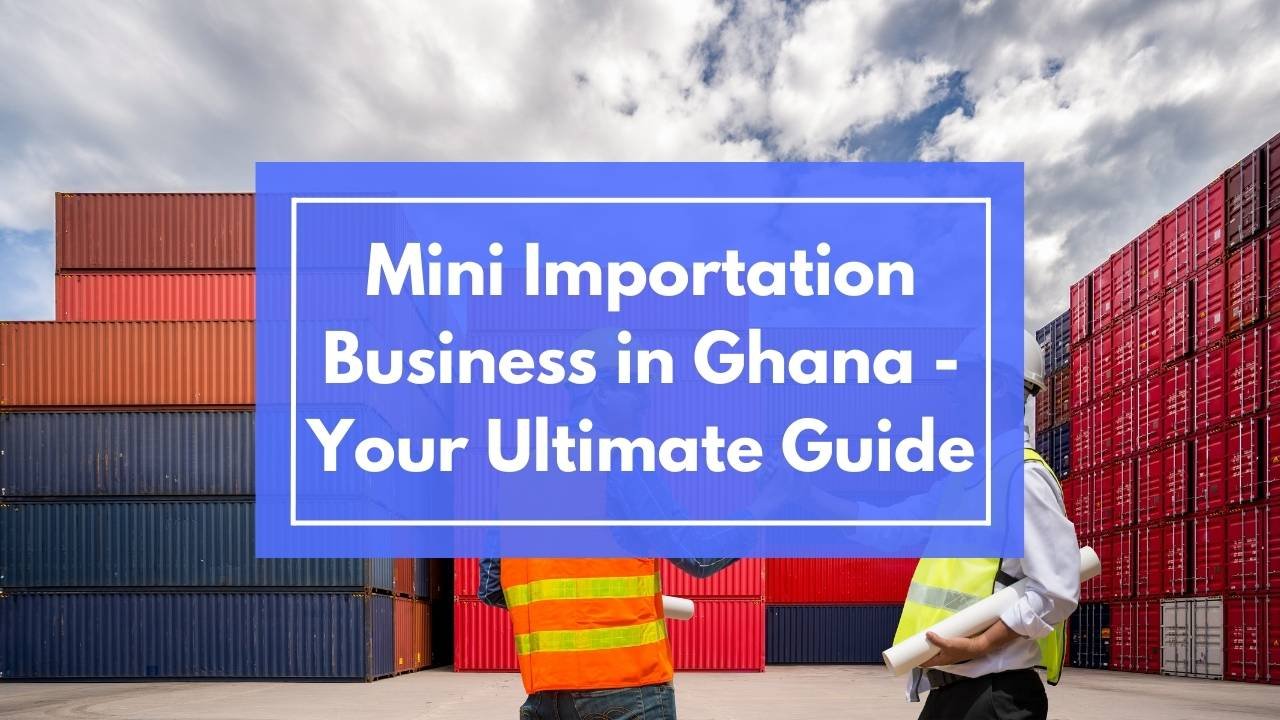Introduction to Mini Importation in Ghana
Mini importation in Ghana is a rapidly growing business opportunity that allows individuals to import goods in small quantities from countries like China, the United States, and the United Kingdom and resell them at a profit. With the rise of e-commerce platforms like Alibaba, 1688, Pinduoduo, and Taobao, importing products has become easier and more accessible for everyone. Whether you’re looking to start a side hustle or establish a full-time business, mini-importation offers a lucrative opportunity to tap into Ghana’s expanding market.
In this comprehensive guide, we’ll cover everything you need to know about starting a mini-importation business in Ghana, including choosing the right products, navigating payment methods, ensuring safe transactions, and understanding agent shipments. By the end of this article, you’ll be well-equipped to launch your own mini-importation venture.

1. What is Mini Importation?
Mini importation is the process of purchasing goods from foreign suppliers, typically in small quantities, and selling them locally for a profit. Unlike traditional importation, which involves buying large volumes of goods, mini importation allows you to start with a minimal investment. This makes it an attractive option for entrepreneurs who want to start a business without a significant upfront capital.
The process usually involves the following steps:
- Product selection: Identifying high-demand products that you can source at a lower cost.
- Supplier selection: Finding reliable suppliers on platforms like Alibaba, 1688, Pinduoduo, and Taobao.
- Shipping: Arranging for the goods to be shipped to Ghana, either directly or through an agent.
- Customs clearance: Navigating the customs process to get your goods into the country.
- Sales and distribution: Selling the products online or through local markets.
2. Why Start a Mini Importation Business in Ghana?
There are several reasons why mini importation is a viable business opportunity in Ghana:
- Low Startup Cost: You don’t need a lot of capital to get started. You can begin with as little as GHS 1,000 or even less, depending on the products you choose to import.
- High Profit Margins: Products sourced from countries like China can be purchased at a fraction of the cost and sold for a significant markup in Ghana.
- Flexible Working Hours: This business allows you to work from home or any location with internet access, making it ideal for those seeking flexible work arrangements.
- Scalable Business Model: As you gain experience and capital, you can scale your business by increasing the volume of goods you import and expanding your product range.
3. How to Start a Mini Importation Business in Ghana
Step 1: Market Research and Product Selection
Before you start importing, it’s crucial to conduct thorough market research to identify products that are in high demand. Consider the following factors when selecting products:
- Profitability: Calculate the potential profit margins by considering the cost of the product, shipping, and other associated fees.
- Demand: Choose products that are trending or have a consistent demand in the Ghanaian market.
- Size and Weight: Opt for lightweight and compact items to reduce shipping costs.
- Competition: Research the competition to ensure that you can offer a competitive price.
Popular products for mini importation include fashion accessories, electronics, beauty products, and home decor items.

Step 2: Finding Reliable Suppliers
Finding trustworthy suppliers is essential to the success of your mini importation business. The following platforms are popular for sourcing products:
- Alibaba: One of the largest global marketplaces, Alibaba connects buyers with manufacturers and suppliers. It offers a wide range of products, and you can order both small and large quantities.
- 1688: A Chinese marketplace similar to Alibaba, but primarily in Chinese. Prices on 1688 are generally lower than on Alibaba, making it a great option for bargain hunters.
- Pinduoduo: This is a social commerce platform that allows buyers to make purchases at lower prices by forming buying groups. It’s a good option for sourcing products at competitive prices.
- Taobao: Another Chinese e-commerce platform, Taobao is known for its variety of products and competitive pricing. Like 1688, it is primarily in Chinese, so you might need translation tools.

When choosing a supplier, consider factors such as:
- Supplier Ratings and Reviews: Check the feedback from previous buyers to gauge the reliability of the supplier.
- Communication: Ensure that the supplier is responsive and willing to answer your questions.
- Minimum Order Quantity (MOQ): Some suppliers may have a minimum order requirement, so choose one that aligns with your budget.
Step 3: Navigating Payment Methods
Payment is a critical aspect of the mini importation process. There are several payment options available when dealing with foreign suppliers:
- Alipay: Alipay is a popular payment method on platforms like Alibaba and 1688. It is secure and widely accepted, making it a preferred choice for many importers.
- PayPal: While not as commonly used in China, PayPal is still an option for some suppliers, especially those on Alibaba.
- Bank Transfer: You can make direct bank transfers to the supplier’s account, though this may involve higher fees and longer processing times.
- Third-Party Payment Services: Companies like Payoneer and Western Union offer international payment services that can be used to pay suppliers.
To minimize risks, always verify the payment terms with your supplier and keep records of all transactions.
4. Safety Precautions for Mini Importation
While mini importation offers numerous opportunities, it also comes with certain risks. Here are some safety precautions to keep in mind:
a. Verifying Suppliers


Before making any payments, verify the authenticity of the supplier. Check for red flags such as:
- Unrealistically Low Prices: If the price is too good to be true, it probably is.
- Lack of Contact Information: Ensure that the supplier provides verifiable contact details, including a physical address and phone number.
- Poor Communication: A reliable supplier should be responsive and willing to provide answers to all your questions.
b. Quality Assurance
To avoid receiving substandard products, request product samples before placing a large order. This allows you to inspect the quality of the items firsthand. Additionally, check if the supplier offers a return policy or guarantees in case the products do not meet your expectations.
c. Secure Payments
Always use secure payment methods that offer buyer protection. Avoid sending money through unsecured channels or to personal accounts. Platforms like Alibaba offer Trade Assurance, which protects your payment until you confirm that the goods meet the agreed-upon quality and quantity.
5. Understanding Agent Shipments and Customs Clearance
Shipping is a crucial aspect of mini importation. You can choose to handle shipping yourself or work with an agent. Here’s what you need to know:
a. Direct Shipping
Some suppliers offer direct shipping to Ghana. While this can be convenient, it is often more expensive, and you may have less control over the shipping process. Direct shipping is ideal for small and lightweight items.
b. Using an Import Agent
Import agents can handle the entire shipping process for you, from collecting the goods from the supplier to delivering them to your doorstep. They also assist with customs clearance, which can be a complex and time-consuming process.
Benefits of using an import agent:
- Cost-Effective: Agents often consolidate shipments, reducing shipping costs.
- Customs Expertise: Agents are familiar with the customs process and can help you avoid delays and additional fees.
- Time-Saving: Agents handle the logistics, allowing you to focus on other aspects of your business.
When choosing an agent, consider their reputation, experience, and the range of services they offer.
c. Customs Clearance
Once your goods arrive in Ghana, they will need to go through customs clearance. This involves the following steps:
- Documentation: Ensure that all necessary documents, such as the bill of lading, commercial invoice, and packing list, are in order.
- Customs Duties and Taxes: You may need to pay customs duties and taxes on your goods. The amount depends on the type and value of the goods.
- Inspection: Customs officials may inspect your goods to ensure compliance with regulations.
To avoid delays, ensure that all paperwork is complete and accurate. Working with an experienced import agent can simplify the customs clearance process.
6. Selling Your Imported Products in Ghana
Once your products have arrived and cleared customs, it’s time to start selling. There are several channels you can use to reach your target market:
a. Online Marketplaces
Online platforms like Jumia, Tonaton now Jiji Market, and Instagram are popular for selling imported products in Ghana. These platforms offer a wide reach and allow you to connect with a large audience.
b. Social Media
Social media platforms like Facebook and WhatsApp are powerful tools for marketing and selling your products. You can create business pages, run ads, and engage with potential customers directly.
c. Physical Stores
If you prefer a more traditional approach, you can sell your products through local markets or retail stores. This method is ideal for reaching customers who may not shop online.
d. Word of Mouth
Word of mouth is a powerful marketing tool, especially in Ghana. Encourage satisfied customers to refer their friends and family to your business.
7. Challenges of Mini Importation and How to Overcome Them
While mini importation offers many benefits, it also comes with challenges. Here are some common challenges and tips on how to overcome them:
a. Currency Fluctuations
The exchange rate between the Ghanaian cedi and foreign currencies like the US dollar or Chinese yuan can fluctuate, affecting your profit margins. To mitigate this risk, monitor exchange rates closely and consider locking in rates when they are favorable.
b. Shipping Delays
Delays in shipping can be frustrating and costly. To minimize delays, work with reliable suppliers and agents, and plan your shipments well in advance.
c. High Customs Duties
Customs duties can significantly increase the cost of importing goods. Research the applicable duties and taxes before importing and factor them into your pricing strategy.
d. Language Barriers
When dealing with suppliers from non-English speaking countries, language barriers can be a challenge. Use translation tools and consider working with suppliers who have English-speaking representatives.
8. Tips for Success in Mini Importation
To succeed in the mini importation business, consider the following tips:
- Start Small: Begin with a small order to test the market and minimize risk. As you gain experience and confidence, you can gradually increase your order size.
- Build Relationships: Establish strong relationships with reliable suppliers and agents. This can lead to better prices, priority service, and smoother transactions.
- Stay Informed: Keep up with trends in the Ghanaian market and adapt your product offerings accordingly. Regularly research new suppliers and products to stay competitive.
- Focus on Customer Service: Providing excellent customer service can set you apart from the competition and encourage repeat business.
- Leverage Technology: Use tools like Alibaba’s Trade Assurance, Alipay, and social media platforms to streamline your business operations and reach a wider audience.
Conclusion
Mini importation in Ghana is a profitable business that offers numerous opportunities for entrepreneurs. With the right knowledge, tools, and strategies, you can start and grow a successful importation business that meets the needs of the Ghanaian market.
Remember to conduct thorough market research, choose reliable suppliers, and take the necessary safety precautions to ensure your business thrives. By leveraging platforms like Alibaba, 1688, Pinduoduo, and Taobao, you can source high-quality products at competitive prices and build a thriving mini importation business in Ghana.

